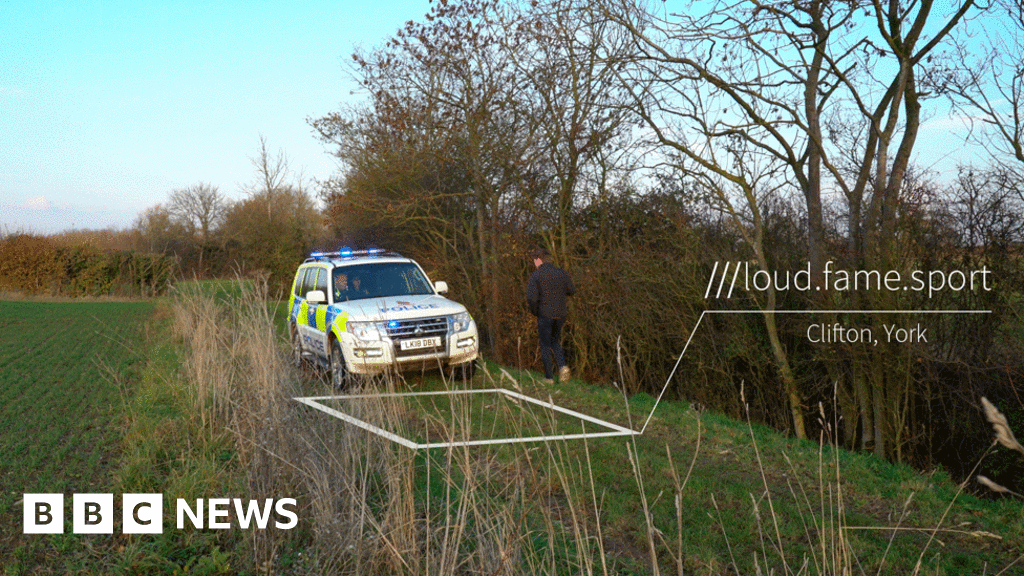Three-unique-words 'map' Used To Rescue Mother And Child

 Image copyright
What3words
Image copyright
What3words
Three seemingly unconnected words have helped rescue a mother and daughter after a car crash in remote rural Somerset.
The "coordinates" - "weekend", "foggy" and "earphones" - allowed police to exactly pinpoint their location.
An algorithm developed by start-up what3words divides the world into 57 trillion nine-sq-m (97-sq-ft) areas and gives each a unique three-word address.
The technology has been adopted by a number of emergency services in the UK.
It was originally devised to help the millions of people in remote and impoverished areas who do not have a postcode gain an address for the first time. In turn that would allow them to apply for services and goods.
But the location system has also gained the attention of emergency services and has recently been adopted by Avon and Somerset, Humberside and West Yorkshire police services, Cambridgeshire, Bedfordshire and Hertfordshire fire and rescue services and the British Transport Police.
It has been used in several other cases, including:
- A call handler used it to send someone to rescue a victim of sexual assault being held hostage and capture the offender
- A member of the public used it to locate a remote riverside path where she had found a lost child
- A taxi driver used it to locate a drunk man lying in a road
- It was used to pinpoint the exact location of a road accident
Call handlers can send people who ring them a text message that contains a link to the what3words map, where they can see their location and immediately read the corresponding three-word address.
Help can then be dispatched to that precise location.
Sam Sheppard, from Avon and Somerset Police, said: "Having this type of technology integrated within our command and control system has changed the way we are able to deal with incidents where the location isn't known.
"We are moving away from the old style questioning - 'Where have you come from?', 'Where are you going?', 'What can you see?' et cetera."
"These questions take time and aren't always that accurate.
"Asking for a three word address or sending an SMS [text message] so they can easily provide their three-word address has meant we have saved valuable time locating incidents."
Chris Sheldrick, co-founder of what3words, said: "Being in need of urgent help and not being able to easily describe where you are can be very distressing for the person involved and a really difficult situation for emergency services.
"Today, people nearly always have their phone on them.
"We need to use the tools at our disposal to improve public services and potentially save lives."
He told BBC News the company was keen to get ambulance services around the UK using the system next.
It has previously been used at music festivals and for disaster relief.
From Chip War To Cloud War: The Next Frontier In Global Tech Competition
The global chip war, characterized by intense competition among nations and corporations for supremacy in semiconductor ... Read more
The High Stakes Of Tech Regulation: Security Risks And Market Dynamics
The influence of tech giants in the global economy continues to grow, raising crucial questions about how to balance sec... Read more
The Tyranny Of Instagram Interiors: Why It's Time To Break Free From Algorithm-Driven Aesthetics
Instagram has become a dominant force in shaping interior design trends, offering a seemingly endless stream of inspirat... Read more
The Data Crunch In AI: Strategies For Sustainability
Exploring solutions to the imminent exhaustion of internet data for AI training.As the artificial intelligence (AI) indu... Read more
Google Abandons Four-Year Effort To Remove Cookies From Chrome Browser
After four years of dedicated effort, Google has decided to abandon its plan to remove third-party cookies from its Chro... Read more
LinkedIn Embraces AI And Gamification To Drive User Engagement And Revenue
In an effort to tackle slowing revenue growth and enhance user engagement, LinkedIn is turning to artificial intelligenc... Read more

